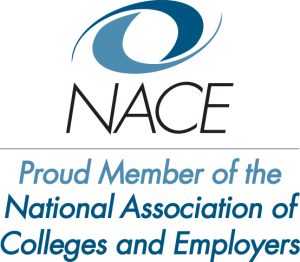My Experience Using PathwayU As A Mentoring Tool
Career services professionals not only desire to help the students at their institution, but they also want to support the professional development of their staff. They can’t help it; helping others grow is hardwired into them.
If you are working in career services, you likely want to mentor your staff to help each of them advance in their own careers. But you may not know where to start or how to translate what you already know to working with your own people. To address this topic, I want to share a recent experience of my own.
Panic City
I had a brief wave of panic at the end of a recent semester. Let me first share something about me so you can appreciate the irony at that moment.
In their latest blog, Kurt Kraiger, Principal Psychologist at @pathway_u shares his story of #mentoring and coaching individuals using the PathwayU tool. Read more:Click to TweetI'm an expert on mentoring. As a university professor, I have directed 23 dissertations, usually through a true mentoring bond with the student. I have won university and professional awards for my student mentoring. I’ve also researched mentoring. I recently published a scientific study in which my co-authors and I identified and classified over 700 unique, detailed behaviors of expert mentors. I even deliver mentor workshops for college faculty.
So why the panic? I offered to mentor a graduate assistant who held a staff position in my department while pursuing her MBA. I realized that in my 38-year career, I had never mentored anyone outside of an academic context. I know it all, but I had never done it! She was trusting me with her professional development, but I was a novice, not an expert!
Small Steps
When I calmed down, I considered two things: She was unsure of how she wanted to use her degree, and I knew a little about career assessments. Because the University of Memphis is a PathwayU school, I asked her to take our assessments and bring her results. Preparing for our mentoring meeting, I predicted how she would score and planned how I would coach her after we reviewed her profile.
Over lunch, we discovered that I had correctly predicted her top 3 interest scores, although in a somewhat different order. She was surprised and asked how I guessed. Her highest score was in Social. Her role with me was supporting a professional development program for undergraduates, and I told her it was obvious how much she enjoyed contributing to something that impacted students' lives.
Her second-highest scoring was on Enterprising. I reminded her of several clerical projects I gave her and that she didn't just do what I asked but came up with new ways to do the tasks to make them more efficient and useful to the program. I pointed out that many employers value that mindset so that when she interviews for a job after her degree and she is asked about her strengths, she can give examples of taking routine tasks and making them better using her creativity and intelligence.
Her creativity was also related to her Artistic scores. The spreadsheets she maintains are color-coded. The data she tracks for me are laid out the way I like, but the data she maintains for herself has a different organization. I explained to her that she will always be assigned tasks she doesn't enjoy, so injecting some of her own personality into those is an easy form of job crafting to make the experience more enjoyable.
Discover how Kurt Kraiger, Principal Psychologist of @pathway_U utilized our tools to provide an excellent and insightful #mentoring experience for his graduate assistant: Click to TweetThe Tools in Front of Me
I then asked a question directly off the PathwayU My Journey page: "Tell me about your favorite job that you've held. What did you like about it?" She discussed a part-time job working in a Student Services Center for international students. We commented on the similarity between that role and her profile - An program and a role that impacts others, coupled with the opportunity to do special projects with a personal flair. We ended our session brainstorming other career paths and assigning her to research entry paths to careers she found most compelling. By the end of my meeting, my confidence that I could mentor in other realms was boosted, and I was appreciative of PathwayU as a mentoring or coaching tool.
Or maybe I feel a little like the Scarecrow in the Wizard of Oz. What I needed to know and to do was inside me all along. A significant portion of successful mentoring is guiding a protégé through their career journey. Of course, PathwayU is a terrific tool for helping someone discover what brings them meaning and purpose. But the individual dashboard also makes the feedback process much easier.
There are times we need to give someone the direct feedback that their self-perceptions are off. PathwayU makes this discussion easier by shifting the focus to the generated profile! "This profile shows that you are someone who enjoys..." or "someone who values..." From here, we can easily fold in our own observations while providing room for the protégé to talk about their interests, values, goals, and dreams.
Focusing On Mentoring
A conversation that reaches this point means you’ve gone a long way towards the true personal connection that characterizes successful mentoring relationships. And you’ve done it through the context of talking about who they are, how they fit the work they do, or the career they want to have.
If you are working in career services, not only have you got this, but you’ve had it all along!
-1.png?width=288&height=67&name=PathwayU_PGLogo%20(1)-1.png)











